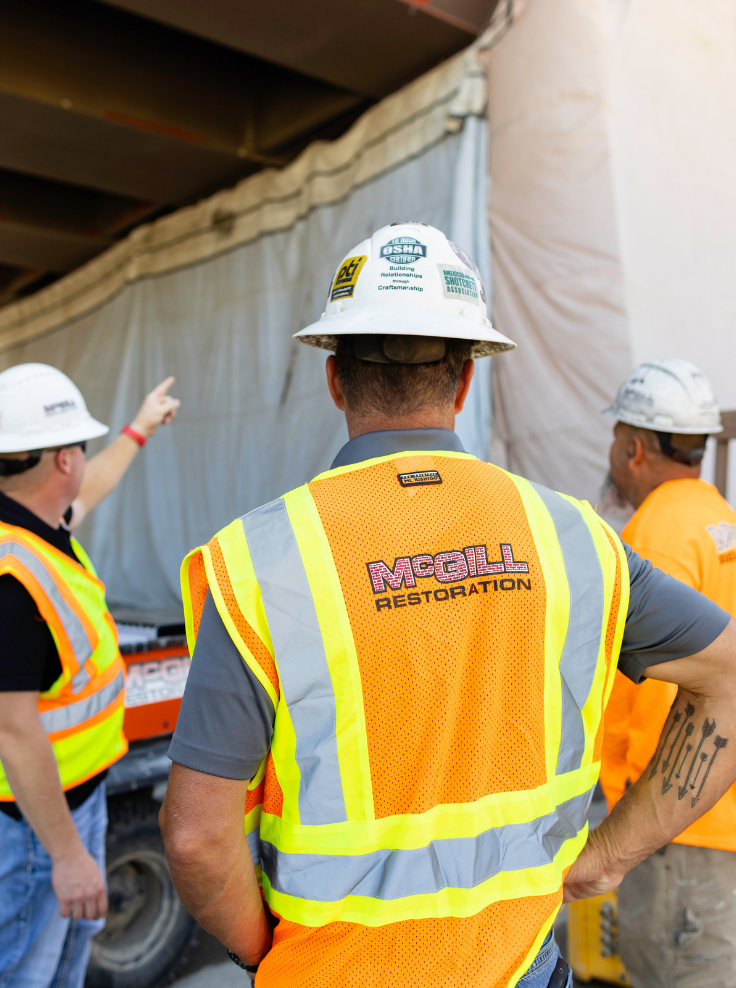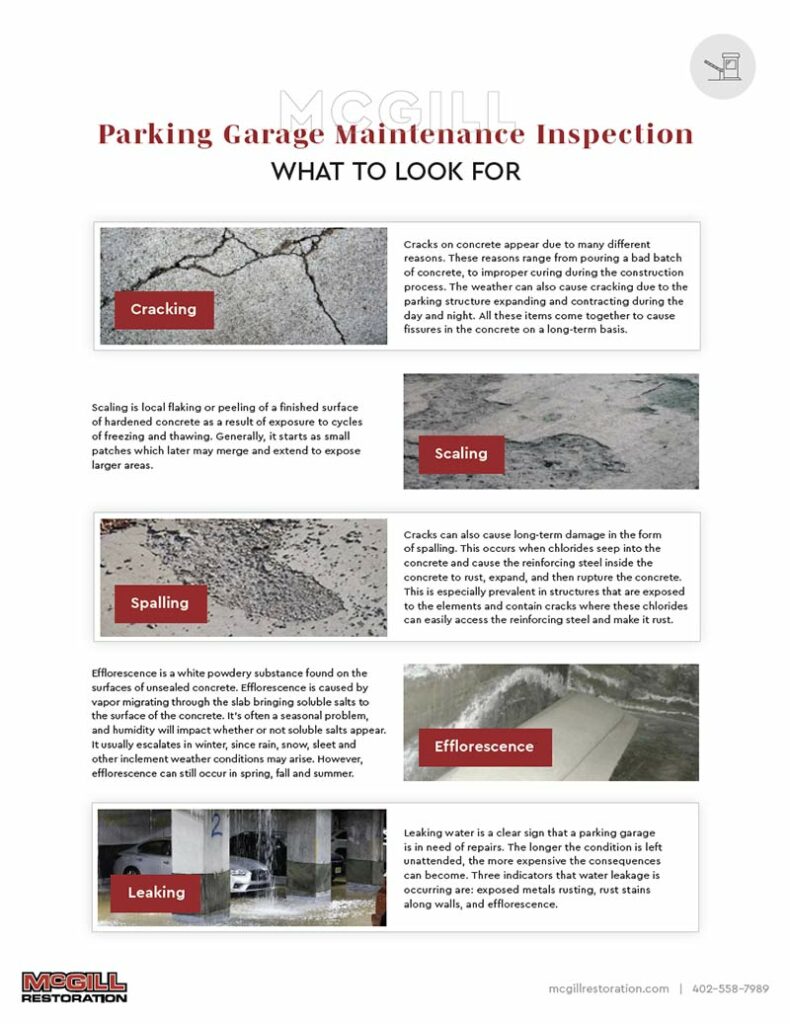Every project runs through the early phases of exploration and outlining with planners and engineers. The contractor is not necessarily present as stakeholders assess and discuss the details and expectations. Professional engineers will also meet and begin assessments for design without consulting a contractor.
While this is not uncommon, plenty of projects can benefit from having contractor input in the early phases. McGill Restoration is frequently involved in early project planning, offering expert advice and a unique contractor’s perspective before the project moves to the bid phase.
When Should Professional Engineers Call a Contractor?
Some projects are complex and can benefit from having every perspective from planning and design to construction execution. On common projects with very standardized processes, it’s not always necessary but special cases often call for contractor assistance.
Utilizing experienced contractors with a history of successfully completing difficult and highly specialized projects is the key to effective partnerships. PEs should know whom they are dealing with and how their specific experience applies and benefits their approach to design and project management.
Professional Engineers should call a contractor when:
- They encounter complex projects
- Design can benefit from understanding construction processes first
- Early timeline determination is critical
- Prepping bid requests benefits from contractor perspectives
- Scoping a project requires contractor experience
Address Project Pitfalls Early
The other major benefit to calling on contractor expertise is addressing potential project pitfalls before they bog down progress. Multiple design revisions are frequently required to address unforeseen obstacles during construction and they can put entire projects on pause.
PEs who call upon trusted contractor partners to assess pre-bid construction issues have the advantage of tapping field experience which empowers better design. Addressing those beneath-the-surface pitfalls prepares the PE to respond quickly when design revisions are necessary, while oftentimes curtailing the need for new designs altogether.
Quality contractor partners will help PEs by:
- Offering a technical assessment of the project
- Delivering experience-based risk analysis
- Calling out problems that may arise during the bid process
- Addressing potential project pitfalls during initial planning phases
The MUD Basin Project Example
The experts at McGill Restoration consulted on the MUD Basin project to help stakeholders and PEs determine if construction was possible while planning acceptable timelines to restore the liner and masonry responsible for holding 20 million gallons of potable water for a local municipality.
This helped the engineers work through design and cost estimates before putting the project to bid.
As consultants, McGill Restoration helped determine:
- The water-holding structures could be restored from a contractor’s perspective
- A 60-day timeline was acceptable
- The process would require specialized solutions to build effective holding cells
After better understanding the construction perspective based on McGill Restorations’ expert input, PEs moved to design and opened the project to bid. The returned bids suggested full demolition and replacement, claiming reconstruction and restoration was not possible.
McGill placed a bid to meet the 60-day turnaround while supplying specific techniques that validated their previous consultation about construction methods. Without their previous consultation and validation of expertise, determining the project was constructable would have been more difficult.
The McGill restoration bid was accepted and the team did an excellent job, successfully completing the entire project at 54 days.
In this highly specialized project, McGill Restoration:
- Removed the 36-year old liner with advanced hydrodemolition techniques
- Deployed a hydraulic robot for embankment coating removal
- Installed 1,000 linear feet of grout injection to seal out penetrating groundwater
- Applied multiple primer coats and an epoxy seal for durability and separation between groundwater and holding water
- Installed final urethane coating for a long-term solution to safely holding potable water
Without the initial consultation, determining the scope of work and options for construction processes would have made it far more difficult for PEs to accurately assess and plan for this large restoration effort.
Commercial Restoration Project Planning from a Partner Perspective
Professional Engineers are busy and often stretched thin with difficult jobs. Bringing a contractor into every conversation is neither feasible nor entirely productive, but having a contractor available as a resource can benefit plenty of difficult projects.
In some cases, a quick phone call answers critical questions that benefit design, in others, an in-person assessment is ideal. McGill Restoration works with PEs to offer experience-based assessments and advice to determine best practices, potential solutions and reasonable timelines.
Mutually beneficial partnerships bring more projects to successful completion with fewer headaches and unanswered questions. When you need an expert opinion, give McGill Restoration a call. We are always happy to help share our knowledge bank with professional engineers, planners, and construction project partners.
For a free estimate or more information, reach out online, follow us on social, or call (402) 558-7989.



